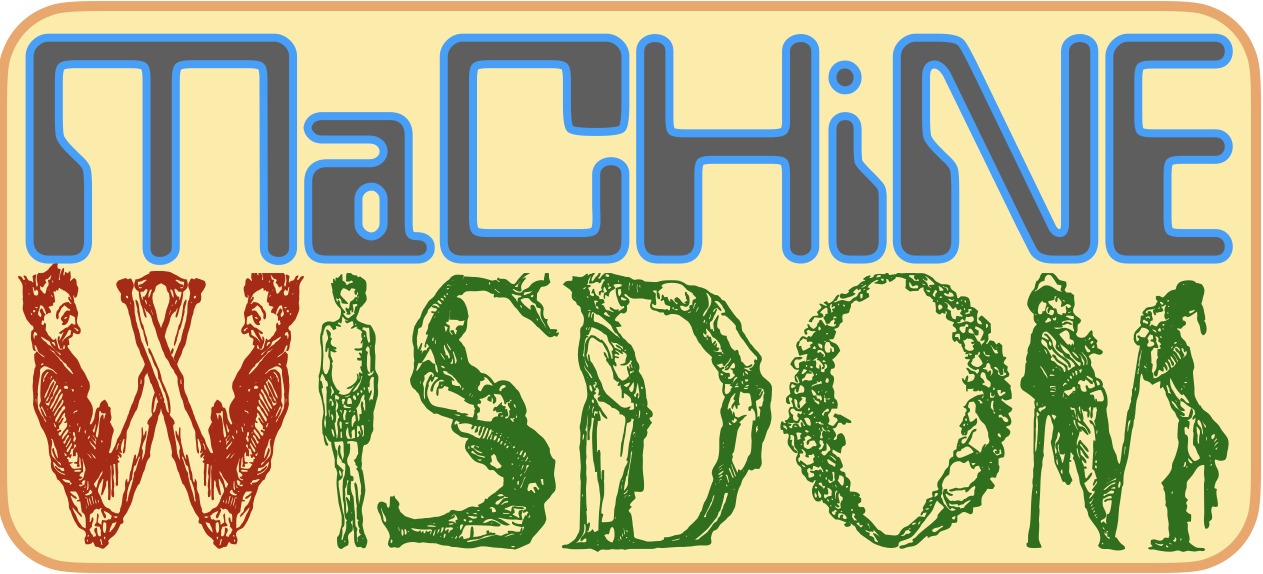

Report on the first workshop, May 2021
Prepared by Andrew Hanin from notes taken during the event
by Jordan Olson, Dasha Pruss, and Xin Hui Yong.
The first Machine Wisdom Workshop was held online on May 7-8, 2021 with participants from the University of Pittsburgh, Carnegie Mellon University, University of Minnesota, Alpen-Adria University Klagenfurt, University of Waterloo, Claremont McKenna College, Washington State University, University of Edinburgh, Ball State University, and Elon University. The first session on the first day began with presentations by Matt Stichter and Valerie Tiberius on the topic, “What is Wisdom?” Stichter and Tiberius explored the different ways one could begin to define wisdom, as well as facing the difficulties of algorithm opacity in the search for wisdom in machines. The second session featured presentations by Igor Grossmann and Judith Glück on the topic “Can We Measure Wisdom?” The main focus of this session concerned how we should define wise values, whether Aristotle’s idea of practical wisdom is adequate for discussions of machine learning, and if it is necessary to go beyond the Aristotelian framework. The main themes raised in these sessions were the issues with algorithm opacity and attempting to transpose our understanding of wisdom from the human context to a machine learning one.
The remainder of the day was dedicated to two breakout groups discussing the problem of defining ‘wisdom' for human use of & interactions with AI. Part of the discussion was focused on coming to a consensus on what exactly machine wisdom is. The groups were particularly interested in understanding what demarcates wisdom from other kinds of cognitive ability like intelligence. Though no group consensus was reached, participants agreed that identifying what the most important of all the known properties of wisdom are could help make headway on the more specific problem of developing an account of wisdom for human-machine interactions.
The second day of the workshop began to take into account the ethics involved in creating wise systems, specifically with EMMA (Ethical, Multimodal, Modeling, and Adaptive) HVAC System. The first session on the second day was on “Wisdom and Expertise, Systems, and AI Ethics.” In the first part of the session, Shannon Vallor discussed the difference between active and passive wisdom, as well as the characteristics of computers that currently disallow them from acting wisely. Then, Chris Davison explained the reasoning for using an AI HVAC system as the sandbox for a machine wisdom project. Davison also discussed the possibility of encoding expertise into a machine which would be a step down from wisdom but still a step forward from where we currently stand. The final session of the workshop, “Applications in AI,” included presentations by Sina Fazelpour and Gabbrielle Johnson. This session laid out known issues that AI systems have with discriminatory decision-making and how we proceed knowing that the AI may act unfairly toward marginalized people.
The majority of this workshop was focused not on arriving at solid, indisputable conclusions, but was rather focused on asking the right kinds of questions about wisdom in human-machine interactions. Participants in this workshop helped to narrow the focus of the machine wisdom project into the main questions of: what is wisdom in an AI context, what do we do with algorithm opacity, what can we do to minimize the possibility of AI marginalizing minorities, and what do we do if something of this nature happens? Throughout the workshop, these questions and related ones were repeatedly raised. Although the solution to these problems aren’t quite clear yet, the final activity of the workshop participants was to outline a list of themes for the next workshop in May 2022.